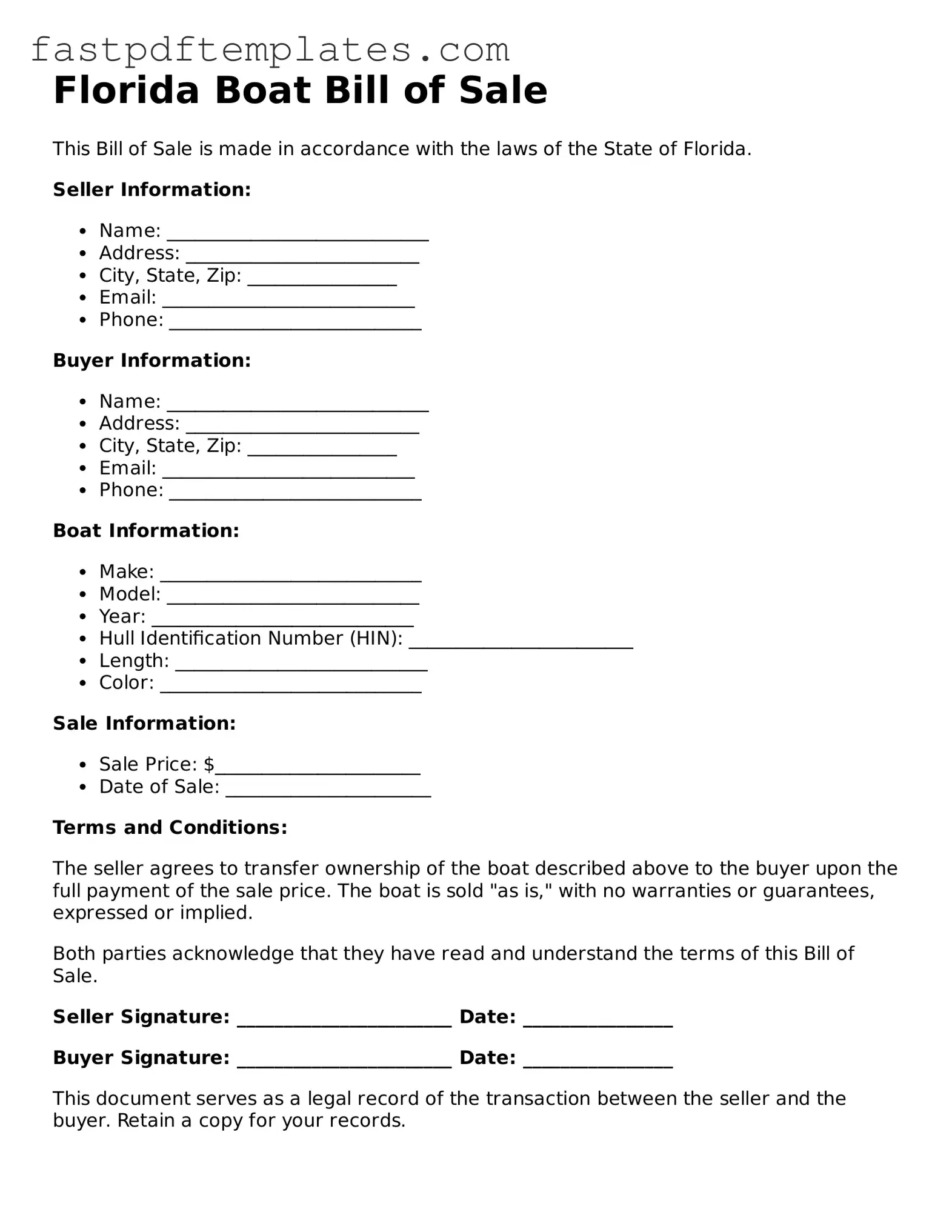Attorney-Approved Florida Boat Bill of Sale Document
The Florida Boat Bill of Sale form is a crucial document used to record the sale and transfer of ownership of a boat in Florida. This form serves as proof of the transaction between the buyer and seller, ensuring that both parties are protected. Understanding its importance can help facilitate a smooth and legal transfer of boat ownership.
Access Document

Attorney-Approved Florida Boat Bill of Sale Document
Access Document
Your form still needs completion
Complete your Boat Bill of Sale online and download the final PDF.
Access Document
or
Click for PDF Form
